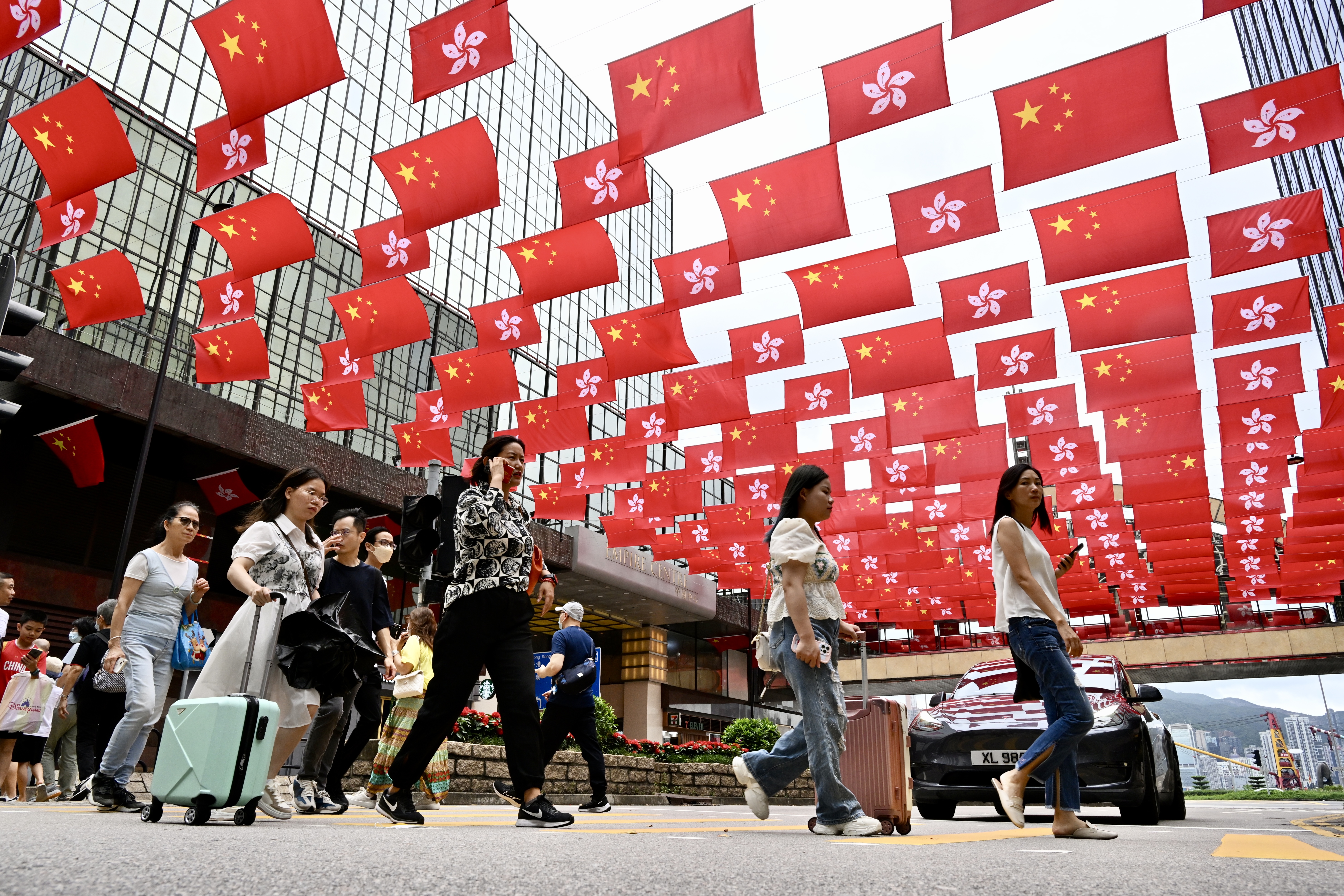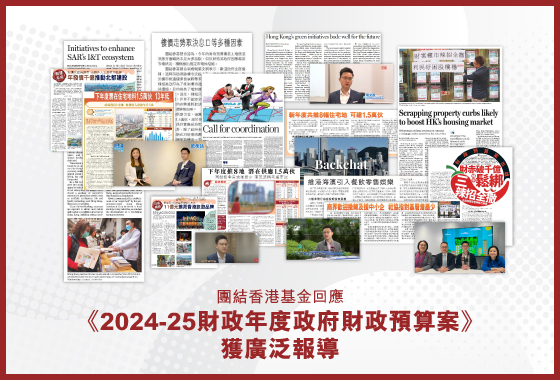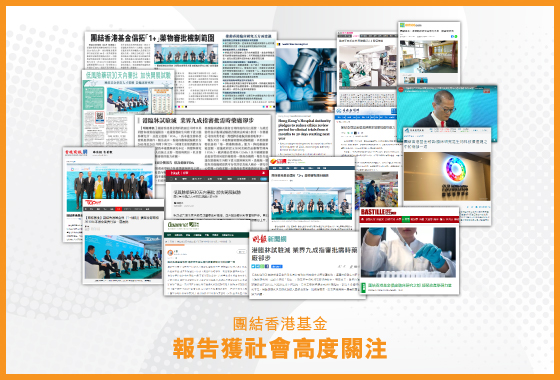HK’s future as biz center secure under ‘one country, two systems’
This article appeared originally in China Daily on 18 Mar, 2024.
Authors: Jane Lee, President of Our Hong Kong Foundation, Dr David R. Meyer, Senior Lecturer in management, Olin Business School, Washington University and Emeritus Professor of Sociology & Urban Studies, Brown University

Arecent report in a Western media outlet suggesting that Hong Kong was planning to ban some popular social media platforms, Facebook and YouTube alike, is another futile attempt to mislead international opinion. Such comments are simply untrue but were made when Hong Kong’s legislature was about to debate the proposed national security legislation under Article 23 of the Basic Law.
The incident crystallizes the optic through which many Western media outlets report on Hong Kong. Therefore, it is hardly surprising that overseas businesses are often confused. It is also increasingly common for friends overseas to inquire about safety and whether they should use “burner phones” during their visits to Hong Kong.
David Meyer interviewed some business leaders headquartered in Hong Kong this past December. He learned that, contrary to these “fears”, the consensus was that the proposed national security law will protect their businesses and provide stability for business operations. Meyer considers Hong Kong’s best days are ahead. China has secured the city’s status as Asia-Pacific’s leading finance-corporate management center.
The “one country, two systems” governance framework guarantees Hong Kong’s protection from external threats: Under the “one country” principle, Hong Kong is an inalienable part of the nation, and the “two systems” gives Hong Kong a high degree of autonomy to govern itself. The proposed national security law is prepared in accordance with common law practices. The principles of fairness and justice guarantee human rights. Hong Kong’s Court of Final Appeal even consists of non-Chinese nationals, a practice not seen in other countries.
This governance framework, in which national leaders repeatedly emphasized their vision for Hong Kong, serves as the country’s window to global capital, and ensures Hong Kong will not be “just another Chinese city”. This is especially significant. Now, national leaders are so confident about Hong Kong’s future as China’s window to global capital that 2047 has become just another year in the city’s history, rather than the expiry date of the “50 years of no change” promise made in 1997. President Xi Jinping has frequently alluded to this.
One of the strongest reconfirmations came during the recent visit to Hong Kong of Xia Baolong, the director of the Hong Kong and Macao Work Office of the Communist Party of China Central Committee and Hong Kong and Macao Affairs Office of the State Council. In meetings with local and foreign business executives, various attendees agreed that Xia clearly articulated that the governance principle of “one country, two systems” was for the long term, perhaps even permanent.
This has monumental consequences for Hong Kong as Asia-Pacific’s leading finance-corporate management center. China’s authorities reiterate that Hong Kong will be “permanently” open to the world as a global business center. International businesspeople will be welcomed as full participants in the sophisticated interpersonal business networks that define the city as a hub of global capital.
Commentators, critics and academics continually fail to recognize that Hong Kong’s status as the leading financial center of the Asia-Pacific region rests firmly on the networks of its financiers and their firms, on the support of sectors of sophisticated lawyers and strategic consultant accountants, and on the nonfinancial senior global and regional managers. Their network behavior, as documented in The Networked Financier (David Meyer), makes Hong Kong the hub of Asia-Pacific networks.
Within Hong Kong, financiers, lawyers, consulting accountants, and other nonfinancial senior decision-makers engage in intense network relations. These operate in face-to-face strategic exchanges of knowledge and business discussions. Each actor brings to these meetings the expertise and knowledge that they have built within their firms. Based on their business activities, each of these actors has its own external network relations with other financiers, clients and government officials within Asia and globally.
Senior financiers confidentially stated in recent interviews with Meyer that the proposed national security law would have no negative impact on their businesses. Their only fear was that businesspeople outside Hong Kong would misinterpret the safety of Hong Kong and, perhaps, be reluctant to do business in Hong Kong.
Global businesses would normally place their senior management for Asia-Pacific in Hong Kong if they expect to be major players in Asia’s economic growth during the 21st century. China is the world’s largest economy, measured by purchasing power parity. Its growth over the coming decades at 3 to 5 percent will far surpass that of the United States and European Union. China is the technology innovation and manufacturing powerhouse of the global economy and owns the intellectual capital for future advanced manufacturing.
China’s global firms increasingly shift their senior managers to Hong Kong. The consequences are immense because of the scale of the Chinese economy and of its businesses. These executives join the existing sophisticated business networks of Hong Kong. This larger network group will make the pivotal decisions about capital exchange within Asia and the rest of the global economy. Senior executives based in other Asian centers such as Singapore, Tokyo, or Sydney will be outside Asia’s most critical business networks.
As of today, 98.6 percent of those who have given a response to the national security legislation consultative paper expressed support during a monthlong consultation period that ended last month. The bill, now undergoing debates in the legislature, references heavily or even copies part of the UK’s National Security Act 2023, which counters foreign influence and espionage, and Singapore’s Foreign Interference (Countermeasures) Act 2021, which counters foreign influence. Similar laws to regulate significant investments critical to national security were also passed by the parliament in the UK, and the USA Patriot Act was enacted in the US within 45 days following the 9/11 terrorist attacks. Hong Kong’s national security laws are fundamental to its protection.
Hong Kong people face a dynamic future as residents of the greatest business center of the Asia-Pacific region. Young people have enormous opportunities to participate in the city’s future growth as China’s window to global capital.



